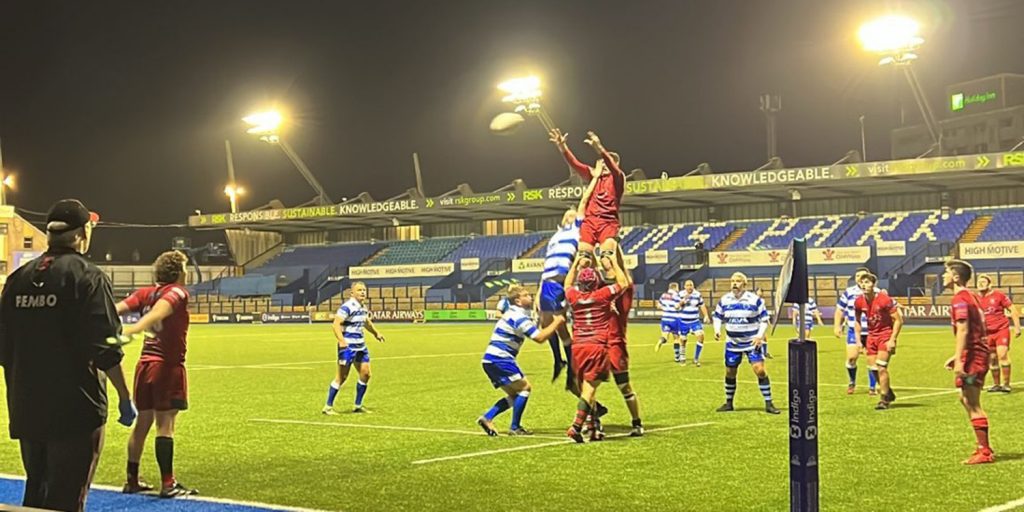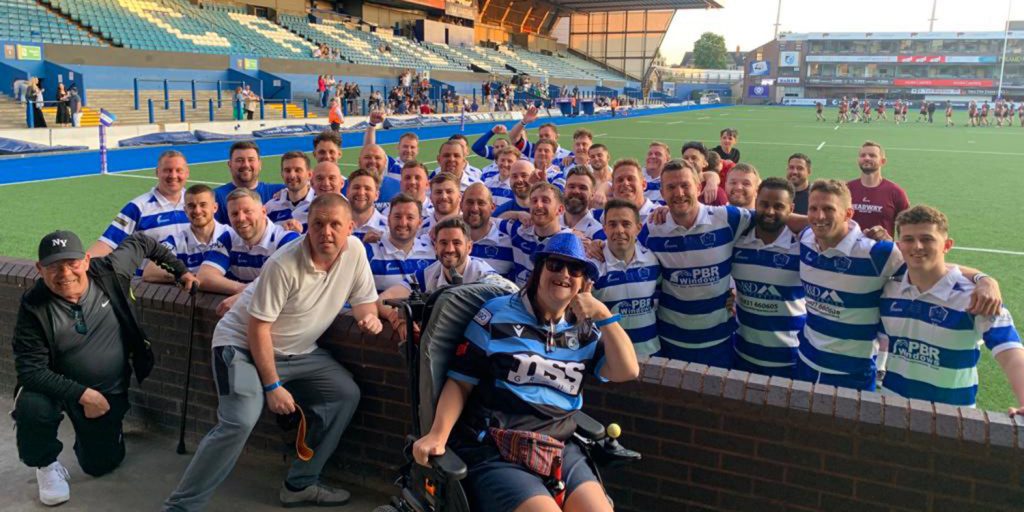As high profile head injury cases emerge, new protocols aim to protect grassroots rugby players from the dangers of concussion

Almost 300 former rugby players are currently pursuing legal action against England and Wales rugby union’s governing bodies. They are accusing them of negligence and failing to protect players from long term head injuries. Gavin Henson, Andrew Coombs and former captain Colin Charvis are three of the 34 Welsh internationals involved in the case.
Coombs recently announced on social media he had been diagnosed with dementia and probable chronic traumatic encephalopathy (CTE) after suffering symptoms for four years.
The issues surrounding head injury are not limited to elite rugby. For the first time ever, UK-wide guidance has been issued on concussion in grassroots sport, dubbed ‘If in doubt, sit them out!’. Its publishing means all grassroots sports across Wales and the UK will adhere to the same protocols, ensuring consistency and safety for players, coaches, parents and more.
In a statement, Sport Wales CEO, Brian Davies said: “We welcome the publishing of this guidance. Ensuring the safety of those participating in sport at any level, should be at the forefront of what we do. We encourage anyone who is organising or participating in sport at a grassroots level to familiarise themselves with the guidance.”
The guidance states that players must be assessed after a knock to the head and anyone displaying one or more symptoms of concussion must be removed from play or training. Assessment by a healthcare professional should take place within 24 hours, even if symptoms are resolved. Players should not return to sport until a minimum 21 days have passed, with the individual following the ‘graduated return to activity and sport’ programme stipulated in the guidance.
A view from the field
Chris Case, 37, is an amateur rugby player from Cardiff, who plays for Rhiwbina RFC and the Headway Select XV charity side. Case has been playing rugby since he was young and now captains the Rhiwbina Second XI.
He is aware of the new guidance and said the diligence of referees and sideline protocols has gone up. Case said there is a “hard line to tow” with players taking to the pitch knowing the risks. He stressed the important thing is how people act when serious injury does happen and being as diligent as possible. In past decades he said there was a “get up and keep going” attitude but this has changed nowadays.
Case explained how preventing head injuries is everyone’s responsibility, and there is concern and respect between opponents and teammates to look out for each other. If someone is on the floor, you stop the game and check they’re ok, he said.
He added: “If you don’t deal with knocks appropriately, there’ll be consequences, the rest of your life is what matters. Be diligent with yourself, teammates and opponents.”
Despite the risk of injury, Case believes more protection is not the answer. “The game will change fundamentally if you dilute it (with more protection),” he said. In his opinion more protection will have a negative impact as it “lures people” into hitting harder. A new type of gumshield has been produced which detects the amount of force a player has been hit with, which Case sees as a better alternative.

Case has seen first-hand the impact of brain injury, as his wife survived a brain haemorrhage in 2017.
Five years ago he created the Headway Select XV to thank and recognise the vital work of Headway Cardiff & South-East Wales. Initially a one-off charity match, the team now plays multiple games a year, raising thousands for Headway.
“Rugby and organisations like Headway go hand in hand, going forward players need these facilities if the worst happens” he said.
Case is also an U9s coach and reinforced how important it is to teach the next generation proper tackle procedure and technique, to avoid the risk of concussion. He hopes rugby evolves but maintains its soul, with people becoming more aware of the impacts of head injury.
If you don’t deal with knocks appropriately, there’ll be consequences
Head injuries can be devastating and have a huge impact on people’s lives. CEO of brain injury charity Headway Cardiff & South-East Wales, Rebecca Pearce, said: “People’s lives change in an instant, it affects all aspects of them.” She added that charities like Headway try to help people adapt and come to terms with their new self, giving people hope and a “new meaning in life.”
Learn about the key symptoms of concussion below:
Is smart technology the answer?
World Rugby announced in October that smart mouthguard technology will now be used in all elite games. The mouthguard measures the g-force of every head impact in real time. If the force is above the accepted limit then doctors are notified via an app and the player is removed immediately for checks. Even if they are cleared to play, checks will also take place after the game as well as two days later.
World Rugby Chief Medical Office Dr Eanna Falvey said in a statement: “The advances in smart mouthguard technology mean elite players will be better cared for than ever before.”
Grassroots players don’t have the money or profile to enter into lengthy court cases with governing bodies over head injuries. The implementation of the new guidance and changing attitudes hopes to protect players of grassroots sport and ensure long term head injuries become a thing of the past. Players can play the game they love without concern for their long-term health.
The stages of concussion recovery
Stage One – Relative Rest for 24-48 hours
Stage Two – Gradually introduce daily activities (Week One)
Stage Three – Increase tolerance for mental and exercise activities (Week One & Two)
Stage Four – Return to study/work and sport training (Week Two)
Stage Five – Return to normal work/education and full training (Week Three)
Stage Six – Return to sports competition (NOT before day 21) as long as symptoms free at rest for 14 days and during the pre-competition training of stage five (Week Three+)
Source: UK Concussion Guidelines for Non-Elite (Grassroots) Sport
